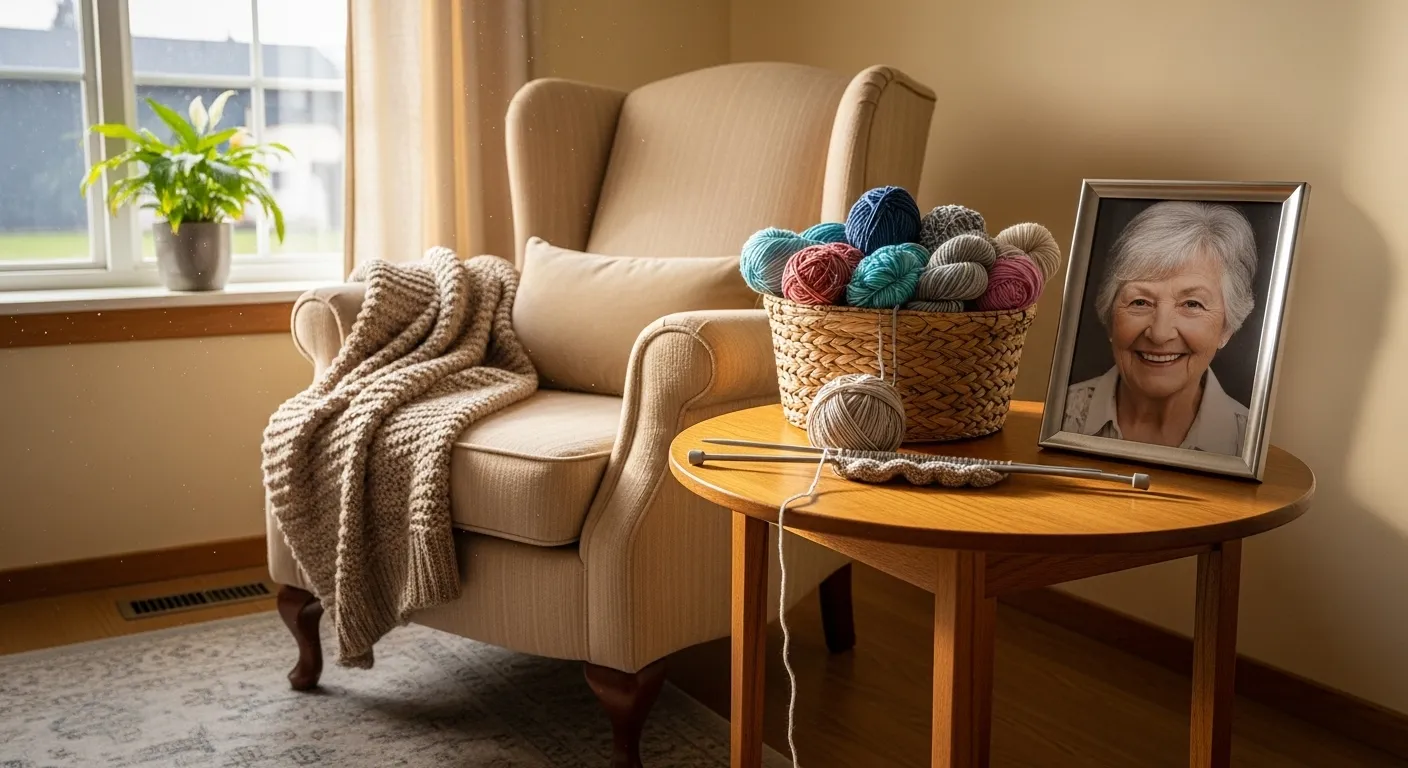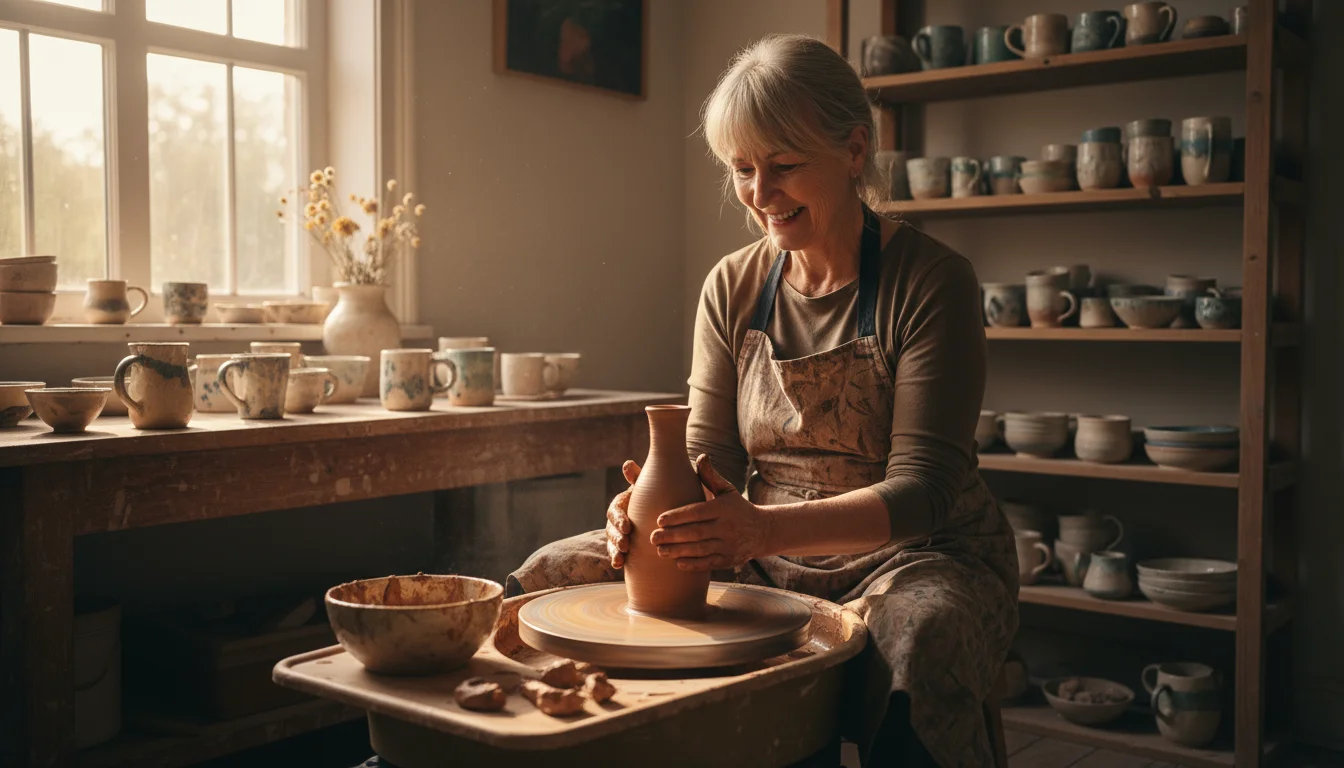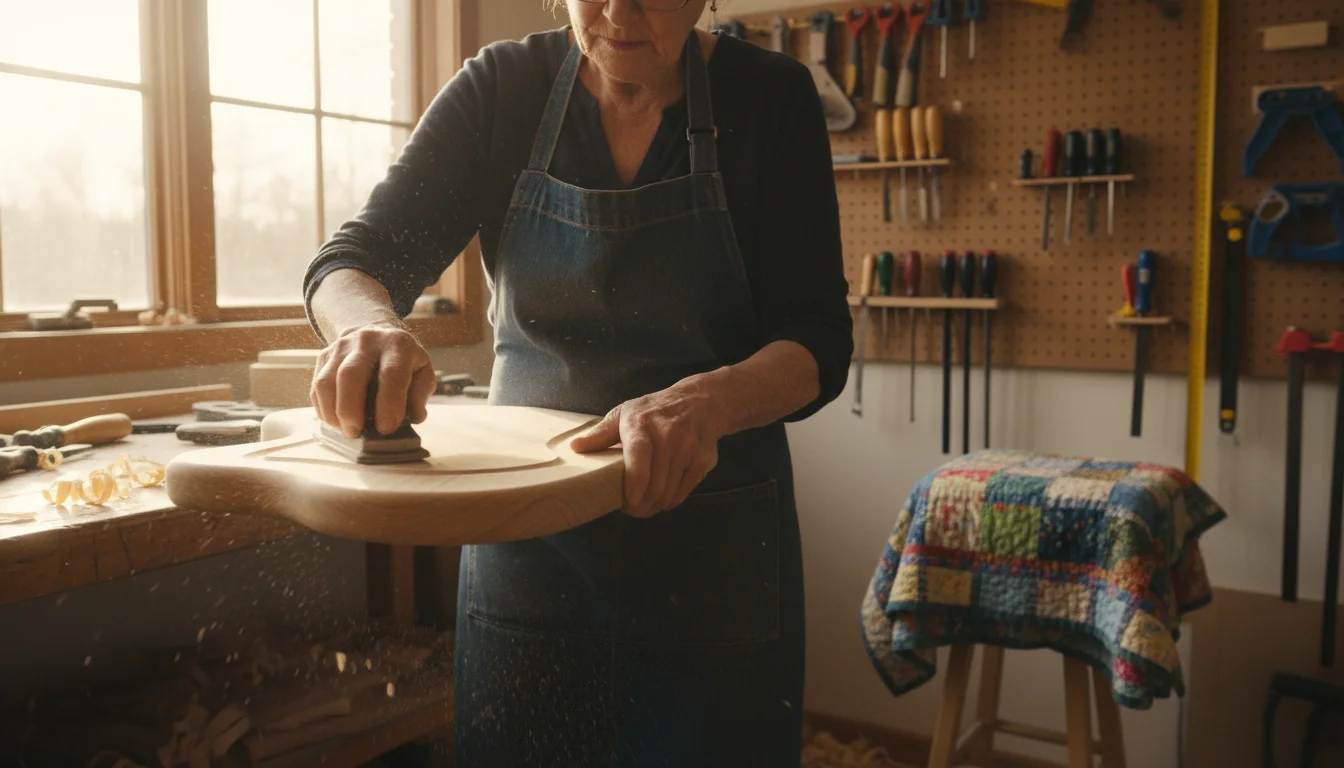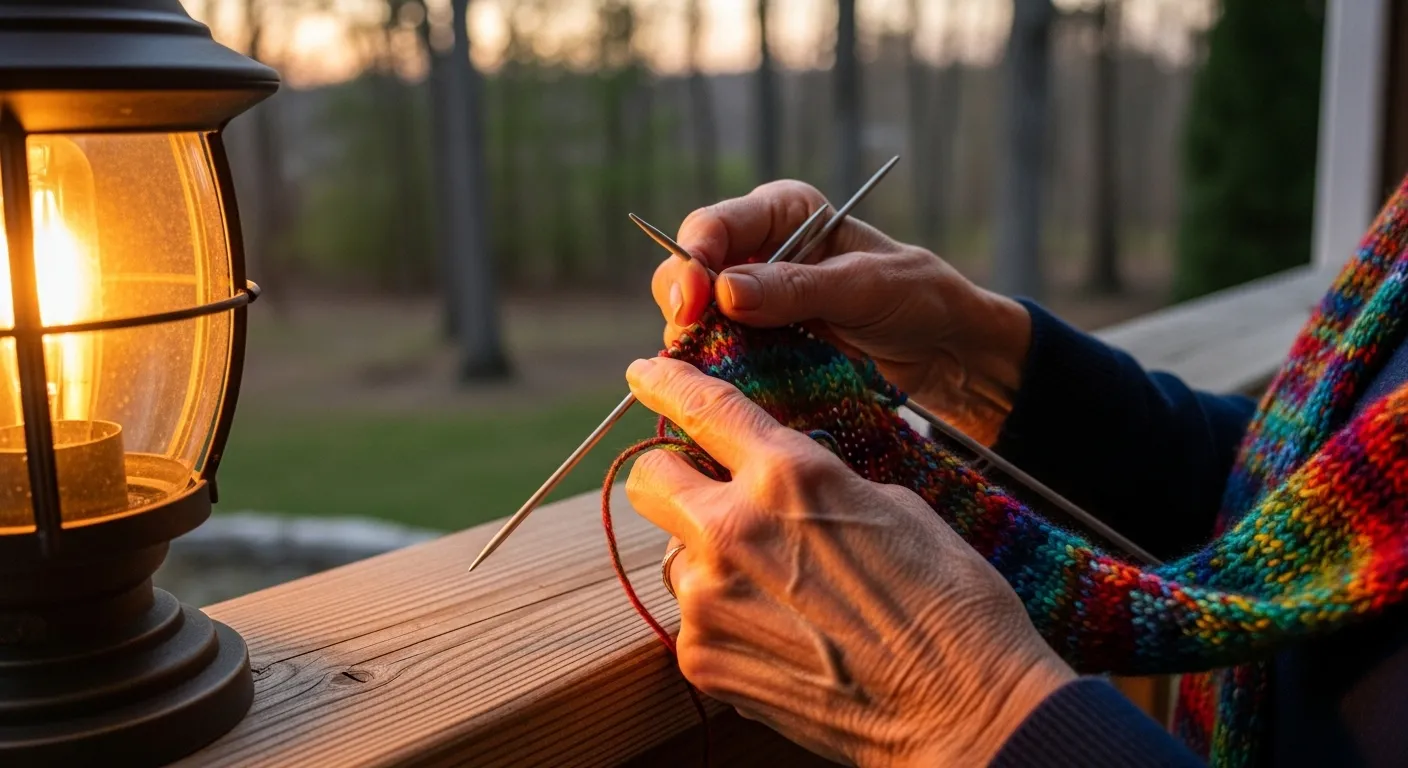

Embracing a New Chapter of Purpose and Profit in Your Retirement Journey
There’s a wonderful secret about retirement that no one really tells you about in the brochures. It’s not just about sleeping in or finally getting to that stack of books on the nightstand. It’s about the rediscovery of time—your time, to do with as you please. For many of us, this newfound freedom is a chance to dive back into the passions we set aside while building careers and raising families. What if I told you that those very passions, the things that bring you the most joy, could also bring a little extra income into your life?
Welcome to the world of the retirement side hustle. This isn’t about clocking in for a demanding nine-to-five. Far from it. This is about taking a skill you’ve honed over decades—whether it’s knitting intricate sweaters, tending a bountiful garden, or telling captivating stories—and sharing it with the world in a way that feels fulfilling and, yes, profitable. It’s about transforming a beloved pastime into one of many fulfilling senior side gigs that add a sense of purpose and connection to your days. This journey is less about the pressure of a traditional job and more about the pleasure of creating, sharing, and earning on your own terms.
Many of us are discovering that a small stream of income from a hobby does more than just supplement a pension or Social Security. It provides a budget for a special trip, treats for the grandkids, or simply the peace of mind that comes with a little financial cushion. More importantly, it keeps us engaged, learning, and connected to our communities. So, let’s explore how your favorite activities might just be the most enjoyable retirement jobs you’ve ever had.

Finding Your Passionate Profit Center: Exploring Hobby-Based Side Hustles
The beauty of turning a hobby into a side hustle is that the options are as unique as you are. Your life experience is a treasure trove of skills that others value. The key is to look at what you love to do and imagine who might benefit from it. Here are a few paths that fellow retirees are joyfully walking right now.

The Artisan and Crafter
If your hands are rarely still and you find peace in the process of creating, this is your domain. For decades, you may have been making gifts for family and friends. Now, a wider audience awaits.
- Woodworking: From custom-made cutting boards and handcrafted pens to ornate birdhouses and small furniture, the demand for quality woodwork is timeless.
- Knitting, Crocheting, and Quilting: Cozy blankets, adorable baby clothes, and intricate quilts are items people cherish. They are willing to pay for the time and love stitched into every piece.
- Painting and Pottery: You could sell your art at local fairs, take commissions for pet portraits, or list your unique ceramic mugs and bowls online. The joy is in seeing something you created find a home with someone who appreciates it.
- Jewelry Making: Beaded necklaces, stamped metal bracelets, or wire-wrapped stones can become a signature line that reflects your personal style.
The marketplace for artisans has never been more accessible. Local craft fairs, farmers’ markets, and online platforms like Etsy put your creations in front of millions of potential customers.

The Knowledge Sharer and Teacher
Your mind is a library of knowledge built over a lifetime. Sharing that knowledge is not only rewarding but can be a wonderful source of income. Think about what you know that others want to learn.
- Music Lessons: Did you play the piano, guitar, or violin for years? Parents are always looking for patient, experienced teachers for their children. Adults, too, are eager to pick up an instrument they’ve always dreamed of playing.
- Tutoring: Your professional background can be a huge asset. A retired accountant can tutor high school students in math, a former English teacher can help with college essays, and a native Spanish speaker can offer language conversation practice.
- Cooking and Baking Classes: Are you famous for your sourdough bread or your perfect apple pie? You could host small classes in your own kitchen or partner with a local community center to teach your culinary secrets.
These teaching-based hobbies for income are about connection. It’s a chance to pass on a skill and watch someone else’s confidence grow, which is a reward all its own.

The Green Thumb and Nature Lover
For those who find their happiness in the soil and the sun, the bounty of nature can be shared in profitable ways. Your garden or your love for the outdoors can blossom into a business.
- Market Gardener: If your vegetable garden produces more than you can eat, consider selling the surplus at a local farmers’ market. Fresh, locally grown produce is always in high demand.
- Flower Arranger: Grow your own beautiful blooms and create custom bouquets for small events, local businesses, or individual orders. A “subscription” service delivering fresh flowers weekly is a popular model.
- Guided Nature Walks: If you are an experienced hiker and know the local trails like the back of your hand, you could offer paid guided walks. You can share your knowledge of local flora, fauna, and history. Exploring our country’s natural beauty can be inspiring; for more information on accessing parks, the National Park Service offers a fantastic senior pass program that can get you started on your next adventure.

The Skilled Helper and Organizer
Some of the most valuable side hustles come from skills that feel like second nature to you but are a major challenge for others. These services are always needed and deeply appreciated.
- Handyman Services: If you’re adept at fixing leaky faucets, hanging pictures, or assembling flat-pack furniture, you can be a hero to many in your community. Focus on small jobs that larger contractors often turn down.
- Professional Organizing: Do you have a knack for creating order out of chaos? Many people, from young families to fellow seniors looking to downsize, are overwhelmed by clutter and will happily pay for your guidance and hands-on help.
- Pet Sitting and Dog Walking: If you love animals, this is perhaps the most enjoyable job in the world. People need reliable, trustworthy care for their furry family members when they travel or work long hours.

From Hobbyist to Entrepreneur: Tips for a Smooth Launch
The idea of starting a “business” can sound intimidating, but it doesn’t have to be. Think of it as simply putting a small, manageable structure around something you already love to do. Here are a few practical steps to get you started.
1. Start Small and Keep it Fun. You don’t need a storefront or a complicated website on day one. Start by telling friends and family what you’re doing. Sell a few knitted scarves to your neighbors. Offer to walk one person’s dog. The goal is to test the waters and, most importantly, maintain the joy. If it starts to feel like a stressful job, it’s time to scale back.
2. Figure Out Your Pricing. This can be tricky, but don’t undervalue your time and skill. A simple way to start is to calculate the cost of your materials (if any) and add a reasonable hourly wage for your labor. Look at what others in your area are charging for similar items or services to make sure you’re in the right ballpark.
3. Leverage the Power of Community. Your greatest asset is your existing network. Join local community groups on social media and share what you’re offering. Put up a flyer on the bulletin board at your community center, library, or place of worship. Word-of-mouth is the most powerful marketing tool for these kinds of personal, trust-based services.
4. Embrace Simple, Friendly Technology. You don’t need to be a tech guru. A simple Facebook page can showcase your work. A free account on a site like Nextdoor can connect you with neighbors. For selling crafts, Etsy provides a step-by-step guide to setting up a shop. Focus on one or two platforms that feel comfortable to you.
5. Connect with Organizations That Can Help. You are not alone on this journey. For lifestyle and community resources, AARP offers extensive articles and local chapters that often discuss second-act careers and entrepreneurship. You can also build skills and network through service. Opportunities to give back can be found via AmeriCorps Seniors, where you might discover a passion that translates into a paid gig. For local programs, check your city or county’s Parks and Recreation department website, as they often host classes and events where you can connect with potential customers.

A Personal Perspective: Lessons from the Retirement Revolution
I’ve had the pleasure of talking with dozens of fellow retirees who have ventured down this path, and their stories are always so inspiring. I think of my friend Carol, a retired third-grade teacher who always found solace in her kitchen. Her chocolate chip cookies were legendary among her family. One day, on a whim, she brought a batch to her local coffee shop. The owner tried one and immediately asked if she’d be willing to supply them twice a week. Today, Carol has a “micro-bakery” and supplies three cafes. She told me, “It’s not about the money, though that’s nice. It’s about seeing the smile on someone’s face when they take that first bite. It feels like I’m still teaching, but my subject is joy.”
Then there’s Frank, a former mechanical engineer who spent his career designing massive industrial systems. In retirement, he rediscovered his love for the intricate mechanics of old clocks. He started by fixing a few for friends. Word got out, and now he has a waiting list of people wanting him to bring their family heirlooms back to life. He works from a small bench in his garage, on his own schedule, listening to the radio. “These clocks have stories,” he said. “I’m not just fixing gears and springs; I’m preserving a piece of a family’s history.”
The common thread in these stories is that the venture is built around passion, not pressure. The profit is a happy byproduct of purpose. They prove that the most successful senior side gigs are authentic extensions of who you are. They are a way to share your unique gifts with the world, one cookie, one repaired clock, one knitted hat at a time.

Resources to Help You Turn Passion into Profit
If you’re feeling inspired, here are a few places to find more information, learn new skills, or connect with a community of makers and entrepreneurs.
SCORE: This nonprofit organization, supported by the U.S. Small Business Administration, provides free business mentorship from retired executives. They can help you think through pricing, marketing, and any other questions you might have, all in a friendly, supportive environment.
Local Community Colleges and Centers: Many offer low-cost or free workshops on topics like “Etsy for Beginners,” “Small Business Bookkeeping,” or even classes to help you refine your craft, from advanced pottery to digital photography.
Online Marketplaces: If you’re interested in selling goods, spend some time browsing Etsy, Shopify, or even Facebook Marketplace to see what others are selling and how they present their work. For services, sites like Upwork or Thumbtack can connect you with clients, though starting local is often easier.
Your Local Library: Never underestimate this incredible resource! Librarians can point you to books on your specific hobby or on starting a small business. Libraries also often have free access to computers and learning databases.

Frequently Asked Questions About Senior Side Gigs
Do I need a formal business plan to get started?
For most small-scale hobby hustles, the answer is no. A formal business plan is for when you’re seeking a loan or planning a major expansion. In the beginning, your “plan” can be as simple as: “I’m going to make ten batches of my famous jam and try to sell them at the church bake sale.” Start by doing, and let the plan evolve as you learn what works.
How will this income affect my Social Security benefits?
This is an important question. If you are receiving Social Security benefits before you reach your full retirement age, there is a limit to how much you can earn before your benefits are temporarily reduced. The rules change annually, so it is crucial to visit the official Social Security Administration (SSA) website or contact them directly for the most current information regarding earnings limits.
I’m not very good with technology. Can I still do this?
Absolutely! Many successful side hustles are entirely offline. You can sell your goods at craft fairs and markets, post flyers on community bulletin boards, and rely on good old-fashioned word-of-mouth. Technology is a helpful tool, but it is by no means a requirement for success. Focus on your strengths and your local community.
What’s the best way to price my products or services?
A great starting point is a simple formula: (Cost of Materials) + (Your Desired Hourly Wage x Hours Spent) = Your Price. For example, if materials for a quilt cost $50 and it took you 20 hours to make at a rate of $15/hour, your price would be $50 + ($15 x 20) = $350. It’s also wise to research what similar, handcrafted items sell for to ensure your pricing is competitive yet fair to you.
What if I try and it doesn’t work out?
This is perhaps the most beautiful part of a hobby-based business. The “worst-case scenario” is that you end up with a few extra handmade items or having spent a bit more time on a hobby you already love. There is no failure here. Every step is a learning experience. You might discover that you prefer just making things for family, or you might find a different angle that works better. The journey itself is the reward.
Disclaimer: The advice in this article is based on general experience and is for informational purposes. Please research local opportunities and consult with relevant experts before making significant lifestyle changes or purchases.
For expert guidance on senior health and finance, visit AARP, Alzheimer’s Association, American Heart Association, Benefits.gov and National Institute on Aging (NIA).
|
Fact-Checked Content
Our editorial team reviews all content for accuracy and updates it regularly. Learn about our editorial process →
|
















